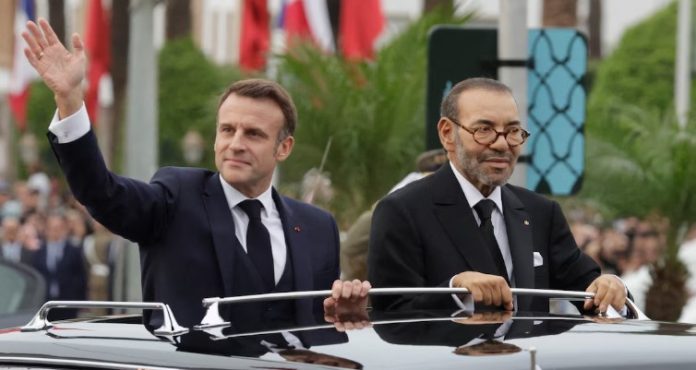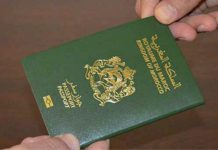French President Emmanuel Macron affirmed on Tuesday, in a historic address before Morocco’s Parliament in Rabat, that “the present and future” of the Moroccan Sahara are “within the framework of Moroccan sovereignty,” a statement that was met with enthusiastic applause.
“This stance is not hostile to anyone,” Macron assured, addressing Algeria’s criticism, as Algeria has supported the Polisario Front, which has called for the region’s independence. Macron added, “And let me emphasize here: our businesses and operators will actively contribute to the development of these regions through investments, sustainable initiatives, and solidarity with local communities.”
The Moroccan Sahara, a former Spanish colony, has seen longstanding tension between Morocco and the Polisario Front, though the region has increasingly been recognized internationally as part of Morocco. Following the United States’ recognition of Morocco’s sovereignty over the territory, Morocco has encouraged France to adopt a similar position.
On July 30, Macron officially expressed, in a letter to King Mohammed VI, that the future of the Moroccan Sahara lies “within the framework of Moroccan sovereignty,” paving the way for renewed diplomatic warmth between France and Morocco while prompting a new phase of tension with Algeria. This shift in France’s stance opened the door to this long-awaited state visit to Morocco.
“The autonomy under Moroccan sovereignty is the framework within which this question should be resolved, and the 2007 autonomy plan proposed by Morocco constitutes the only basis for a just, durable, and negotiated political solution, in line with UN Security Council resolutions,” Macron insisted on Tuesday.
“This stance is rooted in history, acknowledges current realities, and holds promise for the future. France is committed to supporting Morocco in international forums on this issue,” Macron declared. According to him, “it allows a new chapter to begin,” including collaboration with all those interested in fostering regional cooperation in the Mediterranean alongside Morocco’s neighbors and the European Union.
Beyond the Moroccan Sahara, Macron stressed the importance of achieving stability in the Sahel region. He advocated for “youth development projects” as essential to achieving stability and ending trafficking routes and poverty that have afflicted Africa and Europe, particularly from the Gulf of Guinea to Libya.
The Sahel countries of Niger, Mali, and Burkina Faso, led by military juntas, have recently severed ties with France. Macron remarked that France had “unjustly” been blamed for regional instability, emphasizing that for over a decade, French efforts had prevented the collapse of several states amid terrorist threats. He expressed a desire to build a “new partnership strategy” in the region with humility and respect for the evolving dynamics.





